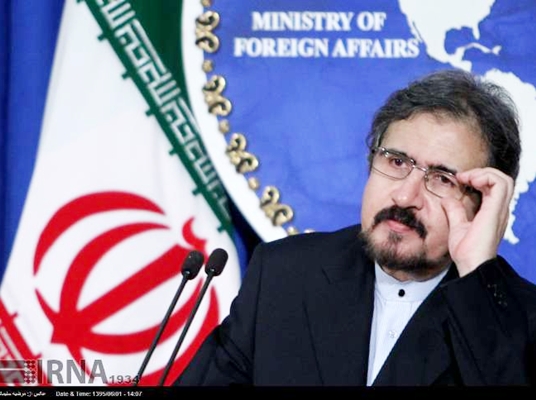“[Given] the situation, which Saudi Arabia has gotten itself into, and in the light of international circles’ acquaintance with the country [‘s activities], its measures [to advance its agenda] would be of no avail and the country would have to answer for its support for international terrorism,” Foreign Ministry Spokesman Bahram Qassemi said.
Qassemi was referring to the Saudi Kingdom’s campaign to propagate its radical ideology of Wahhabism and inculcate extremism worldwide, as well as Riyadh’s lavish financial support for terrorist outfits in the Middle East region.
Speaking in a press conference on Monday, Qassemi also addressed US President Barack Obama’s recent veto of a bill that would have allowed family members of 9/11 victims to sue Saudi Arabia, saying even that would not keep the kingdom from being held accountable for backing terror.
“This measure (the veto) was taken due to some considerations, despite the US Congress’ 28-page report and the fact that today, it is evident to what extent Saudi Arabia has been involved in the September 11 incident.”
The congressional report, recently released by the US administration, links members of the Saudi government to the attackers.
“This measure by the United States is not unexpected. The US acts in the region and the world follow a set of double standards. The country changes its positions in accordance with immediate, temporary, and midterm goals,” Press TV quoted him as saying.
He further rejected Saudi Arabia’s claim of Iran’s presence in Yemen, saying the kingdom tries to play a blame game in the region.
“Saudi Arabia has launched an offensive against an independent country, bombarding and killing innocent people. Now that there’s no way forward for Saudi Arabia, it tries to shift the blame on others. We have, time and again, rejected these claims. We haven’t had and will never have any role in Yemeni developments,” the official asserted, saying it is the Yemeni people, who are resisting the Saudi invasion.
Saudi Arabia has been incessantly pounding Yemen since March 2015, with the UN putting the toll at 10,000. The offensive was launched to reinstate former president, Abd Rabbuh Mansur Hadi, and undermine Ansarullah.
Qassemi also slammed the Arab kingdom for playing an unconstructive role in the Middle East. He said Riyadh is using any means to put pressure on Tehran and sabotage its relations with regional countries.
The senior diplomat later advised the Saudi authorities to take a lesson from the tragic fate of certain regional dictators such as Saddam Hussein and refrain from treading down the same path.
Iran Seriously Warns US against Failure to Implement JCPOA
Elsewhere in his weekly press conference, Qassemi slammed the US for reneging on a nuclear deal between Tehran and world powers known as the Joint Comprehensive Plan of Action (JCPOA), saying that the issue was raised in a recent meeting of the two sides’ officials in New York.
Qassemi pointed to the meeting of the foreign ministers of Iran and the Group 5+1 (Russia, China, the US, Britain, France and Germany) in New York last week, saying that during the talks, Iran seriously warned against the US failure to fully implement the JCPOA.
In the implementation process of the JCPOA, the main instances of reneging on the agreement have been those by the US, he noted.
The foreign ministry spokesman went on to say that in recent negotiations the Iranian side seriously warned the Western parties on the US moves.
The first joint commission of the JCPOA at the level of foreign ministers was held in New York on Wednesday on the sidelines of the 71st session of the United Nations General Assembly.
While the JCPOA, a 159-page nuclear agreement between Iran and the Group 5+1, came into force in January, some Iranian officials complain about the US failure to fully implement the accord.
